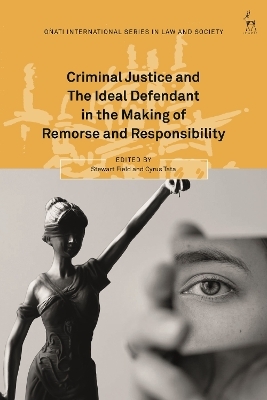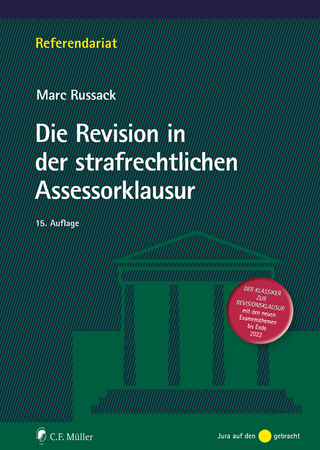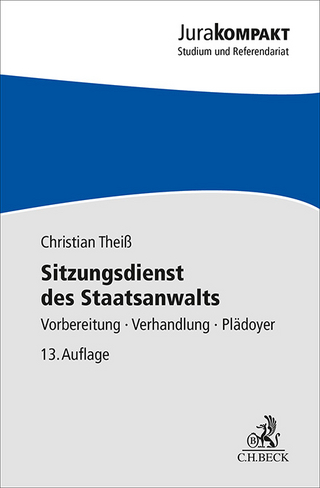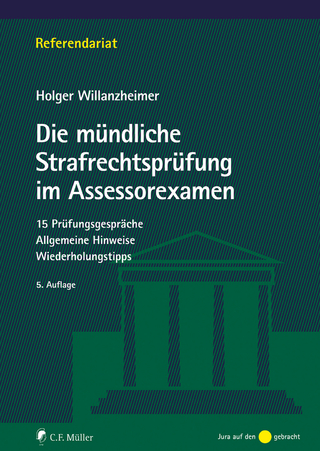
Criminal Justice and The Ideal Defendant in the Making of Remorse and Responsibility
Hart Publishing (Verlag)
978-1-5099-6833-6 (ISBN)
The book argues that defendants, at various stages of the criminal justice process, are expected to show a (more or less) free acceptance of guilt and individual responsibility along with a display of ‘appropriate’ emotions, ideally including ‘genuine’ remorse. It examines why such expressions of individual
responsibility and remorse are so important to decision-makers and the state.
With contributors from across the world, the book opens new comparative possibilities and research agendas.
Stewart Field is Professor of Law at the School of Law and Politics at Cardiff University, UK. Cyrus Tata is Professor of Law and Criminal Justice at Strathclyde University Law School, UK, where he is director of the Centre for Law, Crime & Justice.
Part 1: The Making of Remorse and Responsibility
1. Locating the Ideal Defendant: Punishment, Violence and Legitimacy
Stewart Field and Cyrus Tata
2. Remorse in the French Criminal Justice System: A Subterranean Influence
Virginie Gautron
3. Constructing remorse: Interactional dimensions of finding an emotion
Sharyn Roach Anleu and Kathy Mack
4. Constructing Ideal Defendants in the Pre-Sentence Phase: The Connection Between Responsibility and Potential Remorse
Louise Victoria Johansen
5. The Paradoxical Uses of ‘Culture’ in Judicial Assessment of Defendant Demeanour and Remorse.
Irene Van Oorschot
6. Cultural Sensitivity Training, Judicial Feelings, and Everyday Practice: Conversations at the edge of research
Kate Rossmanith
Part 2: Beyond Remorse
7. Remorse is Not Enough: Disentangling the Roles of Remorse and Insight in the Construction of the Ideal Defendant
Richard Weisman
8. The Construction of the Ideal Defendant: Comparative Understandings of the Normalisation of Guilt
Jacqueline S. Hodgson
9. Looking for the Ideal Parole Applicant?
Nicola Padfield
Part 3: The Political and Cultural Significance of Remorse and Responsibility
10. The Enactment of Political Cultures in Criminal Court Process: Remorse, Responsibility and the Unique Individual Before the French cours d’assises
Stewart Field
11. Punishment and the ‘Blind Symbiosis’ of Legal and Rehabilitation Work in the Making of the ‘Ideal’ Defendant
Cyrus Tata
12. Remorse and Restoration: The Role of Remorse in Constructing the ‘Ideal Offender’ of Restorative Justice
Giuseppe Maglione
| Erscheinungsdatum | 12.11.2024 |
|---|---|
| Reihe/Serie | Oñati International Series in Law and Society |
| Verlagsort | Oxford |
| Sprache | englisch |
| Maße | 156 x 234 mm |
| Themenwelt | Recht / Steuern ► Allgemeines / Lexika |
| Recht / Steuern ► EU / Internationales Recht | |
| Recht / Steuern ► Strafrecht ► Strafverfahrensrecht | |
| ISBN-10 | 1-5099-6833-4 / 1509968334 |
| ISBN-13 | 978-1-5099-6833-6 / 9781509968336 |
| Zustand | Neuware |
| Informationen gemäß Produktsicherheitsverordnung (GPSR) | |
| Haben Sie eine Frage zum Produkt? |
aus dem Bereich


